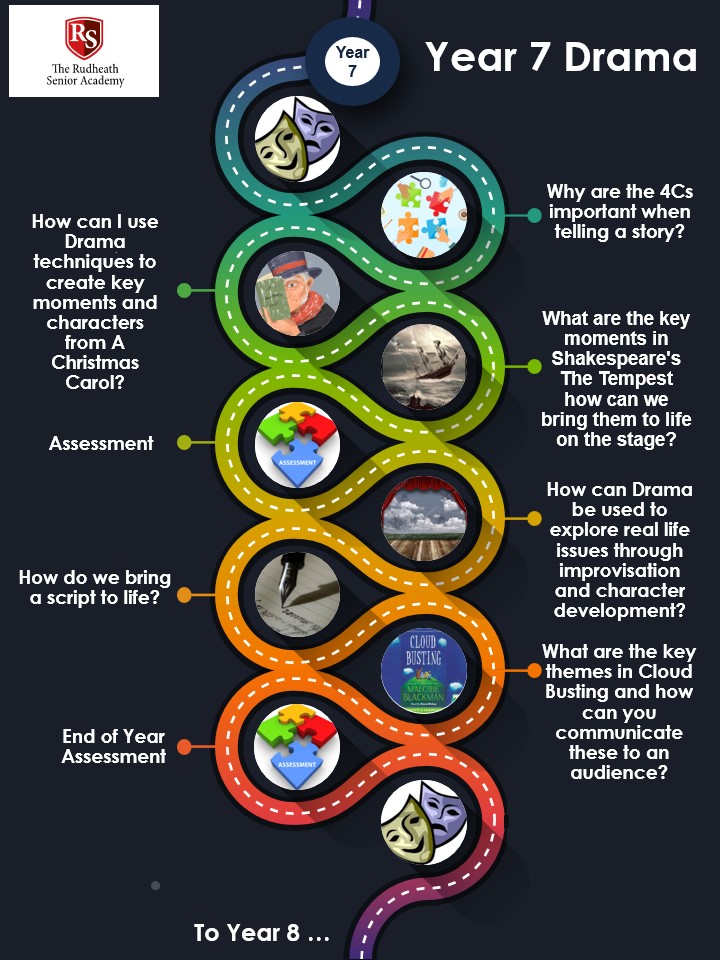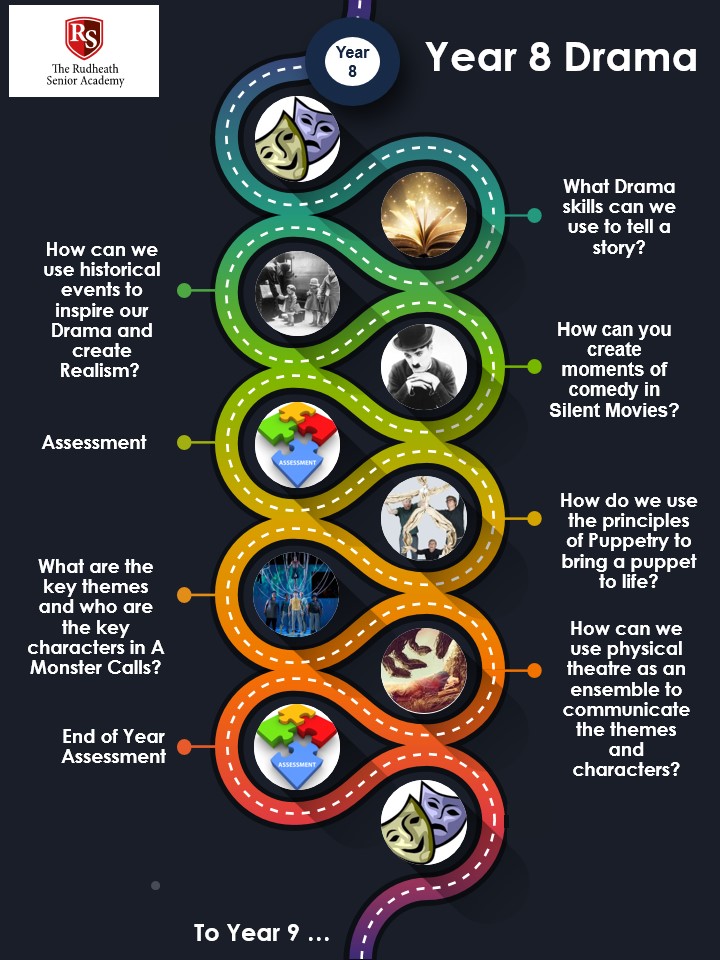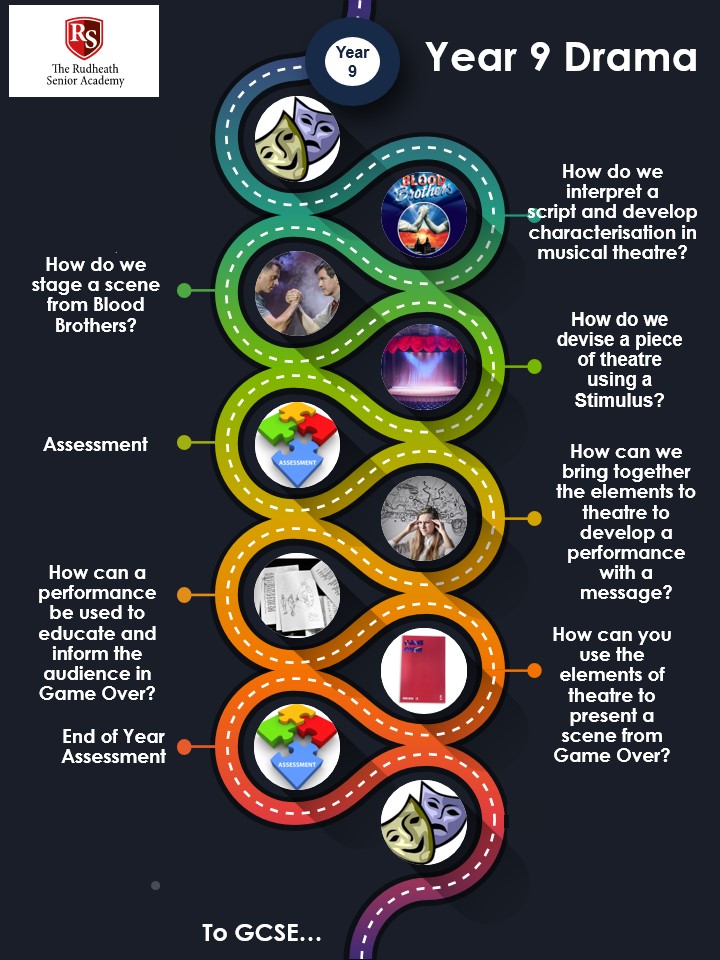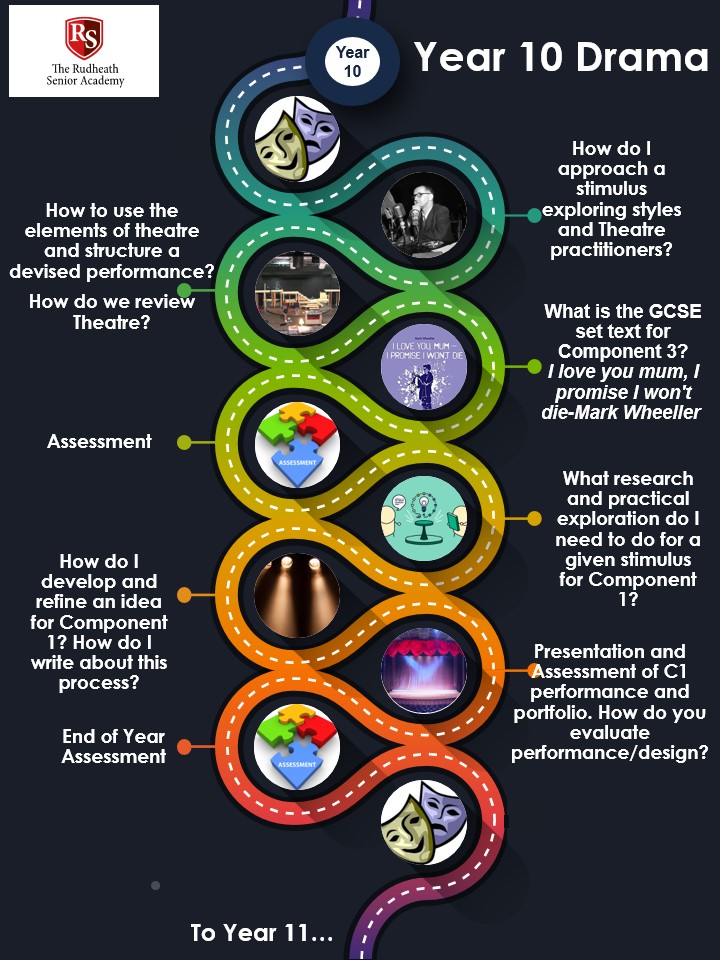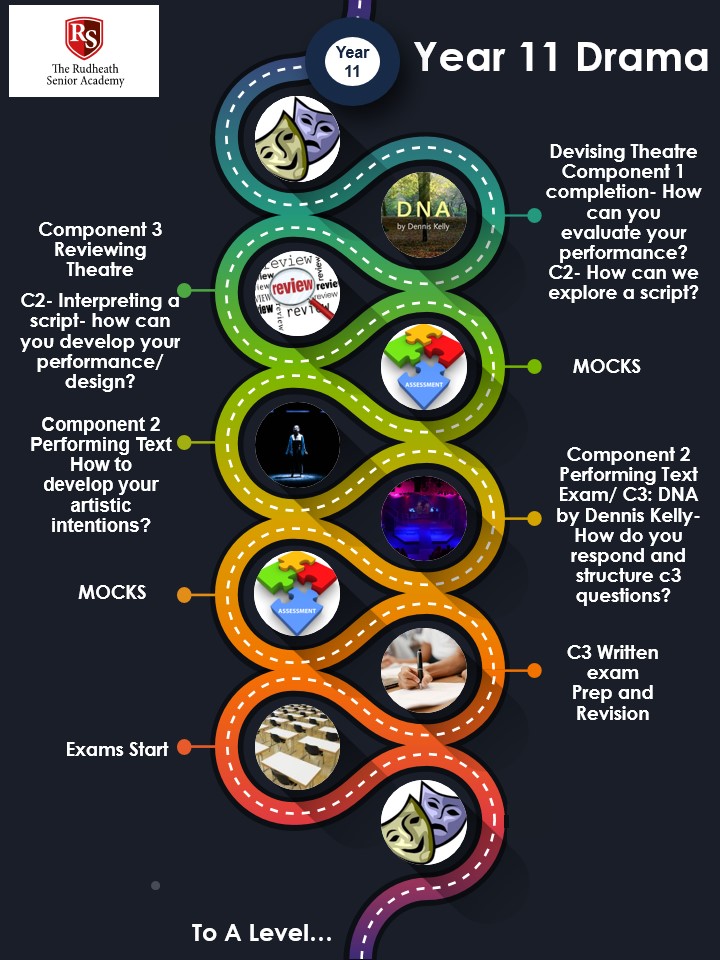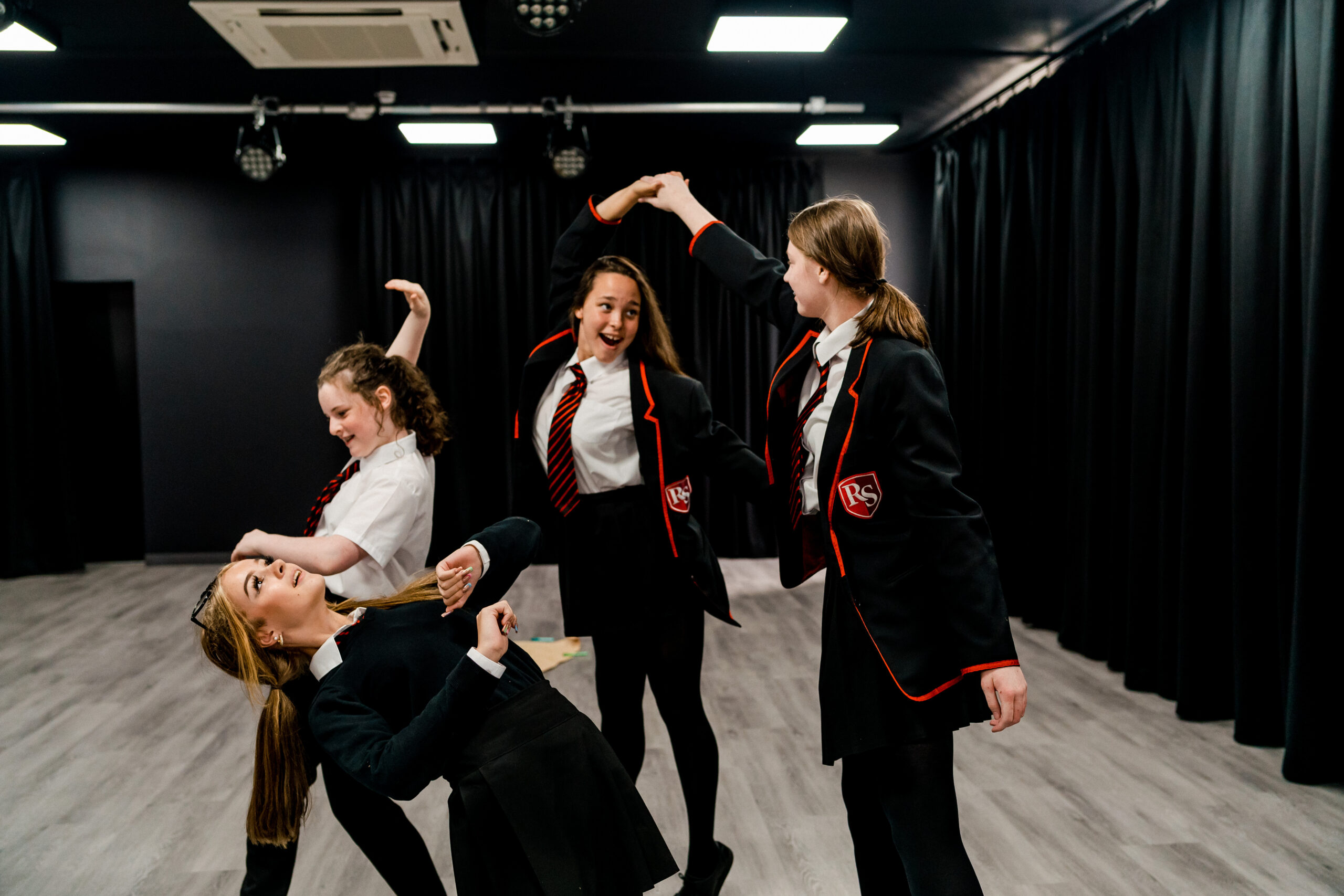
Drama
Drama requires a clear sense of discipline and direction from both pupils and teachers combining subject specific theoretical knowledge with skills transferable to any higher educational institution or career. Outstanding drama education empowers all concerned; we all learn by doing and experiencing for ourselves so the drama curriculum at all key stages, allows students to explore and experience a range of genres, themes and practitioners.
In essence, the Drama curriculum is centered around; developing pupil’s understanding and skill of how to tell a story, to enhance their interpersonal skills, to challenge viewpoints and to ultimately ignite a passion by opening pupil’s eyes to the wonder and power of Theatre.
The Drama curriculum is built on a 5-year spiral curriculum between Years 7 – 11, which encompasses development of creativity whilst introducing students to progressively more challenging concepts.
Year 7 pupils begin their learning journey by learning the basics in performance, developing the confidence to speak in front of an audience, learning some basic Drama techniques. Pupils focus on storytelling and creating characters through Drama. Pupils are also introduced to Shakespeare’s The Tempest where they are shown that Shakespeare’s plays are primarily for performance not just to be studied in a classroom. We aim to make this introduction to Shakespeare non-threatening and accessible through practical exploration of the story and key scenes.
Moving into Year 8, pupils develop an open mindedness when learning about style and form giving them the opportunity to explore a range of texts whilst developing their knowledge of a range of styles of performance whilst continuing to develop individual technique, which becomes increasingly important at GCSE.
In Year 9, pupils explore the elements of production. Exploring text from a performance and theatre design aspect. Developing the devising process taking more ownership of choosing which techniques to use and what direction their performances will take. Pupils explore a range of Theatre Practitioners and build an understanding of theatre design to prepare them for GCSE Drama.
There are opportunities for links made with other subjects for example;
- Year 7 Drama pupils link their knowledge with the Year 7 English curriculum by learning how Shakespeare’s text of The Tempest and Dicken’s A Christmas Carol can be analysed. PSHCE links through ‘Washbrook’ exploring the impact change can have on local communities and Cloud busting is a play which looks at themes of bullying and friendship.
- Year 8 Drama pupils link their knowledge with the Year 8 PSHCE curriculum by linking pupil’s focus of Performance Skills with how can the can develop their communication skills. The play A Monster Calls deals with issues from the perspective of a young person overcoming the illness and loss of a parent and how we manage and deal with our emotions. Historical topics are explored through the Evacuees scheme- using historical events to inspire drama.
- Year 9 Drama students link their knowledge with the Year 9 Music curriculum by linking devising from a stimulus to how musicians can create an effective film soundtrack from a stimulus. PSHCE: Exploring topics through devising that impact young people such as knife crime and the text Game Over focuses on the impact of online gaming.
Drama lessons are centered around Rosenshine’s Principles including; Reviewing learning, presenting new material in small steps whilst asking key questions, providing high quality models and examples, practicing using new information or skills, checking for understanding, providing scaffolding and encouraging independent practice.
All units of work, expose pupils to engaging stimuli that support pupil’s understanding of issues in the wider community which are explored through SEMH diverse texts. Pupils are exposed to examples of high quality performances that pupils must analyse and find ways to improve. In turn this provides opportunities for practical work with an emphasis on independence and resilience in rehearsals. Lessons are matched with Tier 3 Vocabulary that are displayed, defined and revised. Pupils must use this Vocabulary in their responses whilst developing their Oracy skills through high quality discussion and communication. Alongside developing pupil’s knowledge, Drama lessons consist of refining student’s Drama techniques that challenge all learners. Teachers teach to the top and offer extra support wherever necessary.
Formative Assessment
- Knowledge recall tasks activating key information that is required to be successful in the lesson and unit of work
- Shared Success Criteria
- Self and Peer assessment
- Teacher verbal feedback
Summative Assessment
- End of unit Group Performance which is recorded (Teacher assessed with strength and target codes alongside self-assessment on pupils own WWW, EBI and Targets based on shared Success criteria)
As a faculty we are incredibly proud of our cultural capital offer for our pupils. Opportunities are mapped around the curriculum to support the content and to provide context. Pupils develop a better understanding when they can experience and be inspired by live Theatre. This in turn allows pupils to engage more and be inquisitive surrounding their learning.
- Drama teachers perform on a daily basis to allow students to see what mastery looks like.
- Extra-curricular activities are open to all pupils at Rudheath. These clubs will often lead to performance opportunities in assemblies, community projects and shows.
- Throughout the year we offer trips, performance opportunities, visits from performers and theatre professionals, awards, competitions between pupils to increase pupil engagement.
- Homework that requires students to test their knowledge on techniques and performance styles and evaluate their performance for that half term.
Just as there are a variety of courses available to pupils in Drama at Key Stage 4, the subject encourages pupils to explore, develop and imagine, meaning that the work they produce can often be original and beyond what even we have considered. The culmination of our curriculum is that pupils leave our school with the confidence, creativity and intelligence to thrive.
We expect all pupils to leave our school with the grades required to progress to their desired destination, and the character required to flourish once they get there. The resilience pupils develop by creating and refining performances over a significant period of time is a skill employers desperately want school leavers and graduates to have. Our pupils go onto degree programmes across the Creative Arts sectors and onto employment within this area.


